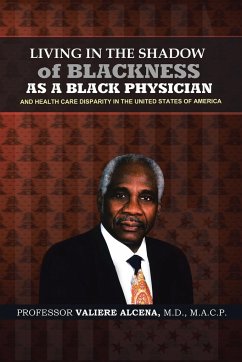This book offers a comprehensive summary of the current and historical trends in physician workforce diversity by residency training specialty and demographic identity group.
This book serves as a one-stop source for physician workforce diversity from the perspective of training specialties, summarizing trends over time, historical barriers, and specialty specific interventions and solutions. Chapters provide a necessary foundational resource for medical educators seeking to enhance diversity, equity, and inclusion (DEI) in their programs and programming. It similarly supports health system and organizational leaders in understanding the current and historical landscape of DEI across medical specialties and demographic groups to inform their interventions and initiatives in an evidence-based manner.
The book is divided into two sections: training specialties and demographic identity groups. In the first section, DEI within several of the largest medical residency training specialties is explored. In the second section, the representation trends of various demographic identity groups, including women and individuals from racial and ethnic minority groups, and deaf and disabled individuals, are discussed, as well as barriers and solutions to improving representation, equity, and inclusion. Each chapter will follow the same format:
Relevant specialty- or demographic-specific literature is reviewed, discussing the rationale for workforce diversity and inclusion in that specialty or demographic identity group.Current data by race, ethnicity, sex, and other available demographics is discussed for various trainee and practicing physician categories across the training and professional continuum, such as practicing physicians, academic faculty, graduate medical education residents and fellows, residency applicants, and medical school graduates.Historical demographic trends are assessed over time.This is followed by a thorough discussion of specialty or demographic-specific strengths and weaknesses to DEI and related barriers, impediments, and interventions and solutions.
This is an ideal guide for medical educators, department chairs in academia and private/community practice, health system leaders, healthcare organization board members and executive leaders, diversity thought leaders, search committees, and medical students and trainees, especially during their specialty selection process.
Hinweis: Dieser Artikel kann nur an eine deutsche Lieferadresse ausgeliefert werden.
This book serves as a one-stop source for physician workforce diversity from the perspective of training specialties, summarizing trends over time, historical barriers, and specialty specific interventions and solutions. Chapters provide a necessary foundational resource for medical educators seeking to enhance diversity, equity, and inclusion (DEI) in their programs and programming. It similarly supports health system and organizational leaders in understanding the current and historical landscape of DEI across medical specialties and demographic groups to inform their interventions and initiatives in an evidence-based manner.
The book is divided into two sections: training specialties and demographic identity groups. In the first section, DEI within several of the largest medical residency training specialties is explored. In the second section, the representation trends of various demographic identity groups, including women and individuals from racial and ethnic minority groups, and deaf and disabled individuals, are discussed, as well as barriers and solutions to improving representation, equity, and inclusion. Each chapter will follow the same format:
Relevant specialty- or demographic-specific literature is reviewed, discussing the rationale for workforce diversity and inclusion in that specialty or demographic identity group.Current data by race, ethnicity, sex, and other available demographics is discussed for various trainee and practicing physician categories across the training and professional continuum, such as practicing physicians, academic faculty, graduate medical education residents and fellows, residency applicants, and medical school graduates.Historical demographic trends are assessed over time.This is followed by a thorough discussion of specialty or demographic-specific strengths and weaknesses to DEI and related barriers, impediments, and interventions and solutions.
This is an ideal guide for medical educators, department chairs in academia and private/community practice, health system leaders, healthcare organization board members and executive leaders, diversity thought leaders, search committees, and medical students and trainees, especially during their specialty selection process.
Hinweis: Dieser Artikel kann nur an eine deutsche Lieferadresse ausgeliefert werden.








